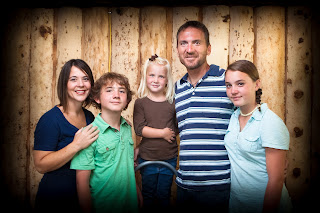Staying Local
 Jim Elliot, one of the 1956 missionary martyrs to the Huaorani in Ecuador, once said, "Wherever you are be all there. Live every moment you know to be the will of God to the hilt." He was getting at the notion of "faithful presence," as put forth in To Change the World, by James Davison Hunter. We live in a world of distraction and escapism. What Jim and James are both calling us to is what could be called localized living. My grandmother would just call it living.
Jim Elliot, one of the 1956 missionary martyrs to the Huaorani in Ecuador, once said, "Wherever you are be all there. Live every moment you know to be the will of God to the hilt." He was getting at the notion of "faithful presence," as put forth in To Change the World, by James Davison Hunter. We live in a world of distraction and escapism. What Jim and James are both calling us to is what could be called localized living. My grandmother would just call it living.What for many generations was just fantasy has now become commonplace. Hundreds of thousands of people will jet to London to see the Olympic games later this month. Hundreds of millions more will watch the games on TV and online. It is as if the whole world is converging on England. The same thing will happen in Brazil for the World Cup in two years and then the next Olympic games in 2016. The digital generation can "be anywhere, anytime" via the internet--a new breed of electronic teleporters akin to David Rice (played by Hayden Christensen) in the 2008 film "Jumper." Although the film was generally panned by critics, it stands as a cautionary tale to our escapist culture. At one point in the film, Roland Cox (played by Samuel L. Jackson) tells the trapped teleporter David, "You think it could go on like this [teleporting in and out of people's lives] forever? Living like this with no consequences? There are always consequences!" Indeed there are. If we insist on being everywhere we want to be, we may lose the ability to be anywhere in particular at any given moment.
The apostle Paul while in Athens addressed the Areopagus: "The God who made the world and everything in it, being Lord of heaven and earth...made from one man every nation of mankind to live on all the face of the earth, having determined allotted periods and the boundaries of their dwelling place" (Acts 17:24, 26). Traditionally we describe this as part of God's providence. He not only made the world, but manages it--down to the details of where we dwell. And his intent, as the apostle points out, is that we might know him and worship him aright.
I'm convinced that one of the chief tools that Satan uses to thwart God's purposes in our lives is to distract us, to get us to live with a constant "the grass is greener" attitude toward life, to make us want to escape our present circumstances instead of find God in the midst of them. Jesus came to dwell with us. His mission has not changed. He now resides in (and among) those who love him and keep his words (John 14:15-24), and will one day return to dwell with his own forever.
Eugene Peterson closed an interview in Christianity Today a few years ago by describing his 45-year career as a pastor:
One thing that I think is characteristic of me is I stay local. I'm rooted in a pastoral life, which is an ordinary life. So while all this glitter and image of spirituality is going around, I feel quite indifferent to it, to tell you the truth. And I'm somewhat suspicious of it because it seems to be uprooted, not grounded in local conditions, which are the only conditions in which you can live a Christian life.This is not to say that we shouldn't travel broadly, or watch world-wide sports or news. It does mean that we should stay grounded, rooted in time and space. There is no other way to live and flourish.

Comments
Post a Comment